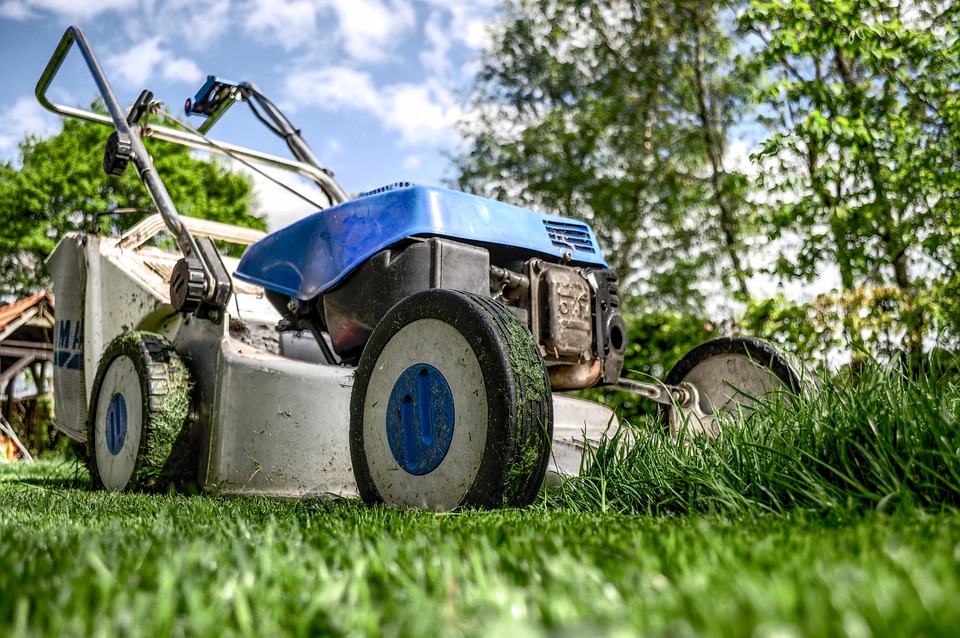Introduction
Having a well-maintained lawn not only enhances the beauty of your property, but it also adds value to your home.
However, achieving a picture-perfect lawn can often seem like a daunting task.
The good news is that with a few simple tips and tricks, you can effortlessly improve the curb appeal of your lawn.
In this article, we will explore some easy lawn care techniques that will yield impressive results.
1. Regular Mowing
Mowing your lawn is one of the essential components of lawn care.
Regular and consistent mowing helps to keep your grass healthy, promote even growth, and prevent weeds from taking over.
Aim to mow your lawn at least once a week during the growing season.
Remember to adjust the height of your mower blades to ensure you’re not cutting the grass too short, which can lead to stress and damage.
2. Watering
Proper watering is crucial for the health and vibrancy of your lawn.
Water deeply but infrequently to encourage deep root growth.
It’s recommended to water your lawn early in the morning to minimize water evaporation.
Avoid overwatering, as it can lead to shallow root growth and make the grass susceptible to diseases.
Use a rain gauge or a moisture meter to determine when to water your lawn.
3. Fertilizing
Fertilizing your lawn is essential to provide the necessary nutrients for optimal growth.
Use a slow-release, balanced fertilizer that contains nitrogen, phosphorus, and potassium.
Apply the fertilizer according to the instructions on the packaging, usually during the early spring and fall.
This will help your lawn stay green and healthy throughout the year.
4. Weed Control
Weeds can quickly ruin the appearance of your lawn.
To keep them at bay, regularly inspect your lawn and promptly remove any weeds you come across.
There are various methods of weed control, such as pulling them manually, using herbicides, or employing natural remedies like vinegar or boiling water.
Keep in mind that prevention is key, so ensure your lawn is healthy and dense to deter weed growth.
5. Aeration
Aeration is the process of creating small holes in your lawn to allow air, water, and nutrients to penetrate the soil.
This helps to alleviate soil compaction, enhance root development, and improve overall lawn health.
You can rent an aerator or hire a professional to perform the task if needed.
Ideally, aerate your lawn once or twice a year, particularly in high-traffic areas.
6. Trimming and Edging
Trimming and edging are the finishing touches that give your lawn a polished appearance.
Regularly trim the edges of your lawn to define the borders and create neat lines.
Use a string trimmer or an edger to achieve clean edges along sidewalks, driveways, and flower beds.
This will provide a visually appealing contrast and improve the overall curb appeal of your lawn.
FAQs Section
1. How often should I mow my lawn?
During the growing season, it is recommended to mow your lawn at least once a week.
However, the frequency may vary depending on factors such as grass type, weather conditions, and growth rate.
2. Can I cut my grass too short?
Yes, cutting your grass too short, also known as scalping, can stress and damage your lawn.
It exposes the soil to excessive sunlight, leading to weed growth and increased water evaporation.
3. When is the best time to water my lawn?
Watering your lawn early in the morning is generally the best time.
It allows the grass to dry before nightfall, minimizing the risk of fungal diseases.
Additionally, watering in the morning reduces water evaporation due to cooler temperatures.
4. How can I prevent weed growth in my lawn?
Avoiding weed growth is best achieved through maintaining a healthy lawn.
Regular mowing, proper watering, adequate fertilization, and aeration will help create a dense turf that discourages weed growth.
Additionally, promptly removing any weeds that appear will prevent them from spreading and taking over your lawn.
5. Is it necessary to hire a professional for lawn care?
While it is possible to maintain a beautiful lawn on your own, hiring a professional can be beneficial, especially for complicated tasks like aeration or dealing with stubborn weeds.
Professionals have the expertise, experience, and equipment to ensure optimal results.




